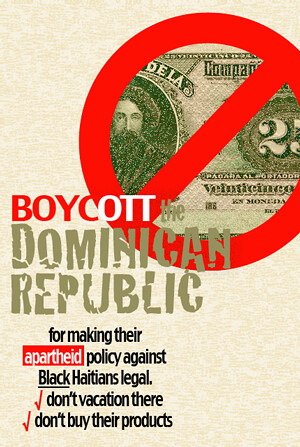Last April the US announced that it was reviving its fourth fleet in the Caribbean, a move that Evo Morales of Bolivia called "the Fourth Fleet of intervention." Hugo Chavez is continuing to seek bilateral partnerships to safeguard his country's sovereignty in the face of US covert and overt interventions and aggression. This month Venezuela announced joint Naval exercises in the Caribbean with Russia. Also, Mr. Chavez is in China this week to "push China-Venezuela strategic partnership of common development to a higher level." This month, members of the Venezuelan military were exposed on a tape plotting a coup and citing US tacit approval. Subsequently, Hugo Chavez announced the expulsion of the US Ambassador to Venezuela, Patrick Duddy; the ambassador is expelled, Chavez said, in solidarity with the expulsion of the US Ambassador to Bolivia, Philip Goldberg just a day earlier. After handily winning a referendum in Bolivia, President Evo Morales faced violent reprisals from the right-wing opposition. Evidence later emerged that Ambassador Goldberg had met with opposition leaders during the violent upheavals that left eight people dead. In the middle of this tense scenario, last Thursday in Venezuela, Americas Director José Miguel Vivanco and his colleague Americas Director Daniel Wilkinson of Human Rights Watch (HRW) held a press conference to present their report (not due for five months) harshly criticizing the Chavez government, entitled “A Decade Under Chávez: Political Intolerance and Lost Opportunities for Advancing Human Rights in Venezuela.” The next day, Vivanco and Wilkinson were accused of "meddling illegally" in Venezuelan affairs and unceremoniously escorted to a plane out of the country. In a press release, the Venezuelan Foreign Relations Ministry said Vivanco and Wilkinson "have done violence to the constitution" and "assaulted the institutions" of Venezuela by "meddling illegally in the internal affairs of our country."James Suggett, writing in Venezuela Analysis points out that: "HRW has issued reports that are [sic] critical of the Chávez administration in the months leading up to crucial Venezuelan elections in the past, raising suspicion that the reports seek to sway Venezuelan voters against the president."In the days following the report, the Venezuelan government and its allies have responded to the report and in an article in OpEdNews.com, Elizabeth Ferrari explains the circumstances surrounding the expulsions and infuses some perspective into the situation that dispels some of the propaganda that has characterized coverage of this volatile situation: "...the American press seems to trust the Bush government and its adjuncts with all things Venezuelan and has once again simply passed on and proliferated the official story. I wish my betters in the press corpse would wake up and smell the disinformation."If you've read John Perkins' book "Confessions of an Economic Hit Man" then you know about the symbiotic relationship between non-governmental agencies (NGOs) and intelligence services. Is it any wonder than that Human Rights Watch and its pronouncements are viewed with justifiable suspicion? Elizabeth Ferrari sums it up in this way: "And then, there’s the matter of our intelligence services hanging out in NGOs. (I suppose, our overseas operatives can’t all work at the local embassy.) A friend of mine from El Salvador reminds me that during the war, a planeful of “humanitarian workers” was shot down and apparently, somehow it was full of US government operatives instead. It was shot down close to the capital and Rolando believes it was the government, not the guerillas, that shot it down. The government had had enough of the “Peace Corps” meddling with their affairs, allies or not. The few survivors of the crash were executed on the spot, it was later determined. Guerillas didn’t operate that close to San Salvador during the war, so this was a terrible case of a US client state sending back a message to Washington. |
Friday, September 26, 2008
MSM: Wake Up & Smell the Misinformation
Labels:
Corruption,
Destabilization,
Hugo Chavez,
human rights,
NGOs,
Propaganda
Subscribe to:
Post Comments (Atom)






No comments:
Post a Comment